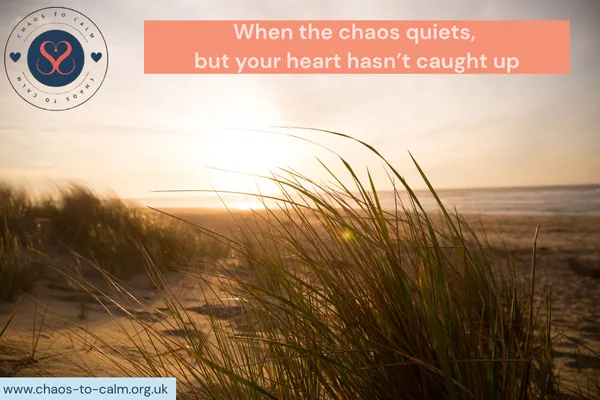
Coming Out of Crisis: The Week After the Storm
Coming Out of Crisis: The Week After the Storm

When the chaos quiets, but your heart hasn’t caught up.
Content warning: Mentions of self-harm and psychiatric crisis.
The crisis passed.
She’s home again.
But peace hasn’t arrived with her suitcase.
The discharge came after what felt like endless weeks, the back-and-forths between hope and heartbreak. Every conversation ended with, “She’s doing well, engaging, stable enough to go home.” And yet deep down, I knew she wasn’t ready.
You can tell when a child isn’t truly safe. Not because of what they say, but because of what they don’t. The quiet moments. The way their smile doesn’t reach their eyes. The way they say, “I’m fine,” but their whole body whispers otherwise.
She came home for a day of leave the weekend before. I wanted it to work, wanted to believe we’d turned a corner. But that day was a disaster.
The tension was unbearable, her mind racing faster than her body could keep up. That night, she called the unit in tears and said she needed to go back early. I’ll never forget the sound of her voice, the mixture of shame and relief as she said, “I can’t do this. I don’t feel safe.”
So when they said she was being discharged properly that Monday, my stomach dropped.
I wanted to be hopeful, but the truth is, hope and fear look almost identical when you’re a parent in crisis mode.
That first week at home feels like walking a tightrope.
You’re desperate to trust the calm, but you can’t.
You try to breathe normally, but your chest won’t unclench.
You tell yourself it’s okay to sleep, but your ears stay tuned for every sound.
I cooked her favourite meals, planned quiet walks with the dogs, tried to recreate routine, pretending everything was okay. But underneath, I was holding my breath. I could see she was too.
It’s strange, isn’t it? The moment you’re meant to feel relief is often the moment you feel most lost.
When someone’s sectioned, you’re surrounded by professionals, nurses checking in, doctors updating, structure holding everything together. And then, overnight, it all stops. No gradual handover, no slow fade-out. Just you. Back home. Expected to hold the weight of recovery with a smile.
But crisis doesn’t end when the section does. It lingers. It echoes.
And for parents like me, that first week after discharge isn’t “back to normal.” It’s just a different kind of survival.
So this week, I’m trying to remember: calm doesn’t arrive on a discharge paper. It comes slowly, quietly, when you least expect it, in the small moments that remind you you’ve both made it through another storm.
And for now, that has to be enough.
Your Calm in the Chaos,
Sami xx
